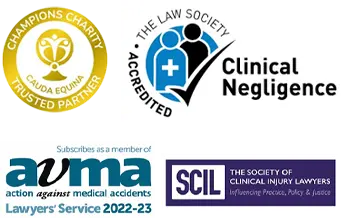
New Approaches to Sepsis and Septic Shock Care
Sepsis is a condition where the body's immune system over-reacts to an infection elsewhere in the body. It can lead to blood-poisoning, multiple organ failure and death. Sepsis is a global problem and attempts to improve responses to the illness are on-going worldwide.
Further to recommendations issued in 2012, The Surviving Sepsis Campaign has developed new guidelines – 'International Guidelines for Management of Sepsis and Septic Shock' - in association with The Society of Critical Care Medicine and the European Society of Intensive Care Medicine.
These new guidelines are aimed at the support and treatment of adults suffering from sepsis and septic shock.
Key Recommendations
The main recommendations can be classified under the following headings:
Initial Resuscitation
- At least 30ml/kg of intravenous crystalloid fluid to be given within the first 3 hours
- Additional fluid treatment to be guided by regular assessment of blood flow
- For patients with septic shock requiring vasoprocessors (drugs to induce blood vessel constriction) a target of mean arterial pressure of 65mm Hg is recommended
- Guide resuscitation to normalise lactate in patients with elevated lactate levels (increased lactate levels are associated with worse outcomes for the patient).
Diagnosis
- Where possible, and where not thought to be detrimental to the patient, blood cultures should be taken before the introduction of antibiotics in order to try to ascertain the pathogen underlying the infection
Antibiotic Treatment
- Introduction of intravenous antibiotics within one hour of onset of sepsis or septic shock
- (for the initial management of septic shock) use at least two different antibiotics aimed at the most likely bacterial pathogen
- Antibiotic treatment of a duration of 7 – 10 days is adequate for most serious infections associated with sepsis and septic shock
- Antibiotic treatment can be narrowed once the pathogen has been identified
- Patients should be assessed daily to facilitate reduction in antibiotic treatment
Fluid Control
- Fluid challenge technique is recommended where fluid administration is continued
Steroids
- The use of steroids is NOT recommended for patients with septic shock where fluid resuscitation and vasoprocessor therapy can restore stability
Nutrition
- Intravenous feeding in combination with normal food intake is NOT recommended over the first 7 days but starting with intravenous glucose and introducing food as tolerated by the patient
Monitoring
- 'Hospitals should implement programmes to improve sepsis care that include sepsis screening for acutely ill, high-risk patients. There is evidence that introducing performance improvement programmes can lead to improved patient outcomes.
Medical Negligence
The opening statement to the new guidelines states. 'Sepsis and septic shock are medical emergencies and we recommend that treatment and resuscitation begin immediately.'
Signs of possible sepsis – rapid heartbeat, rapid breathing, high temperature, chills – should alert medical practitioners to the possibility of an infection in the patient and further investigations should be initiated straight away.
If you have suffered the effects of undiagnosed sepsis, contact us at Glynns Solicitors to ascertain whether you are in a position to make a claim for medical negligence.
Call us free on 0800 234 3300 (or from a mobile 01275 334030) or complete our Online Enquiry Form.



